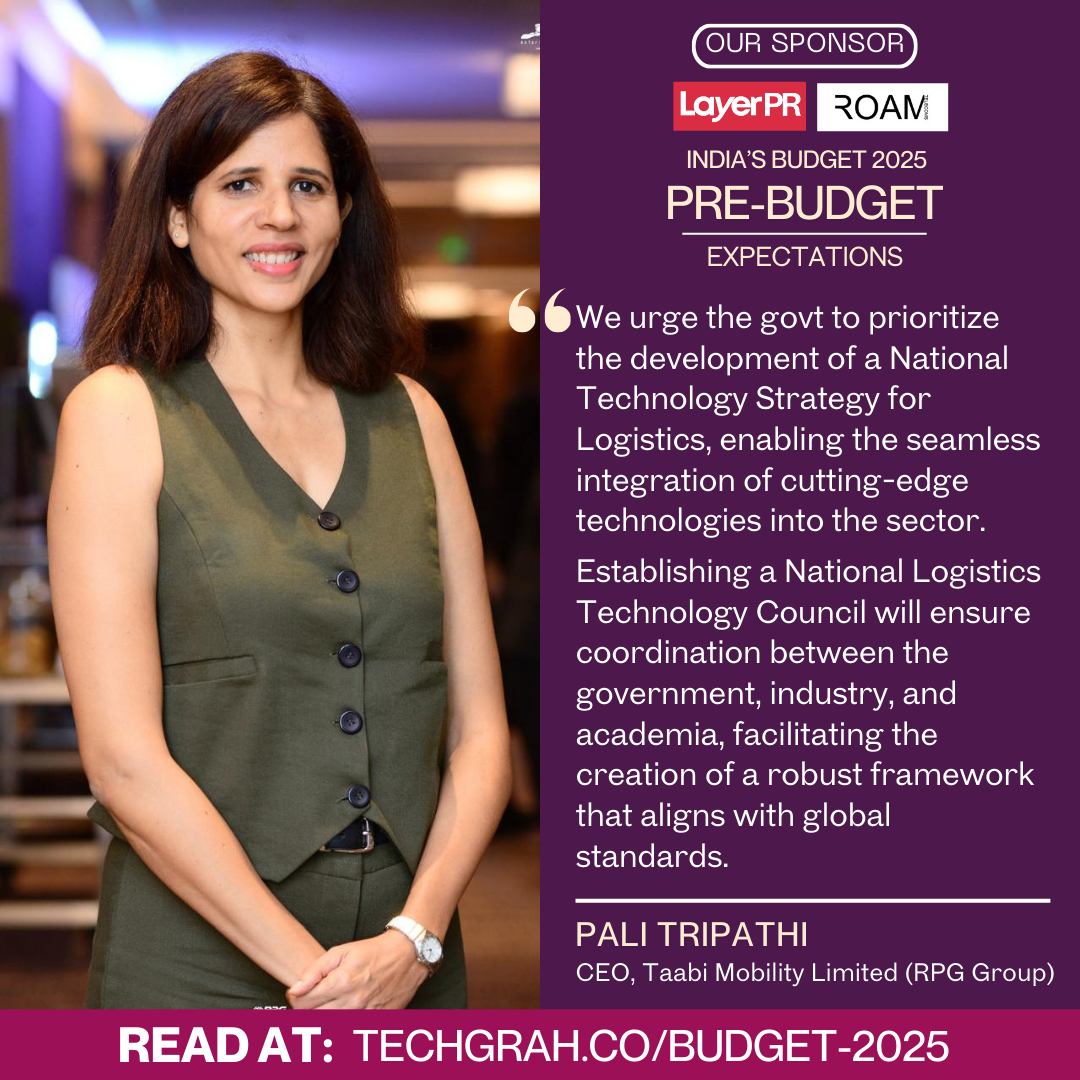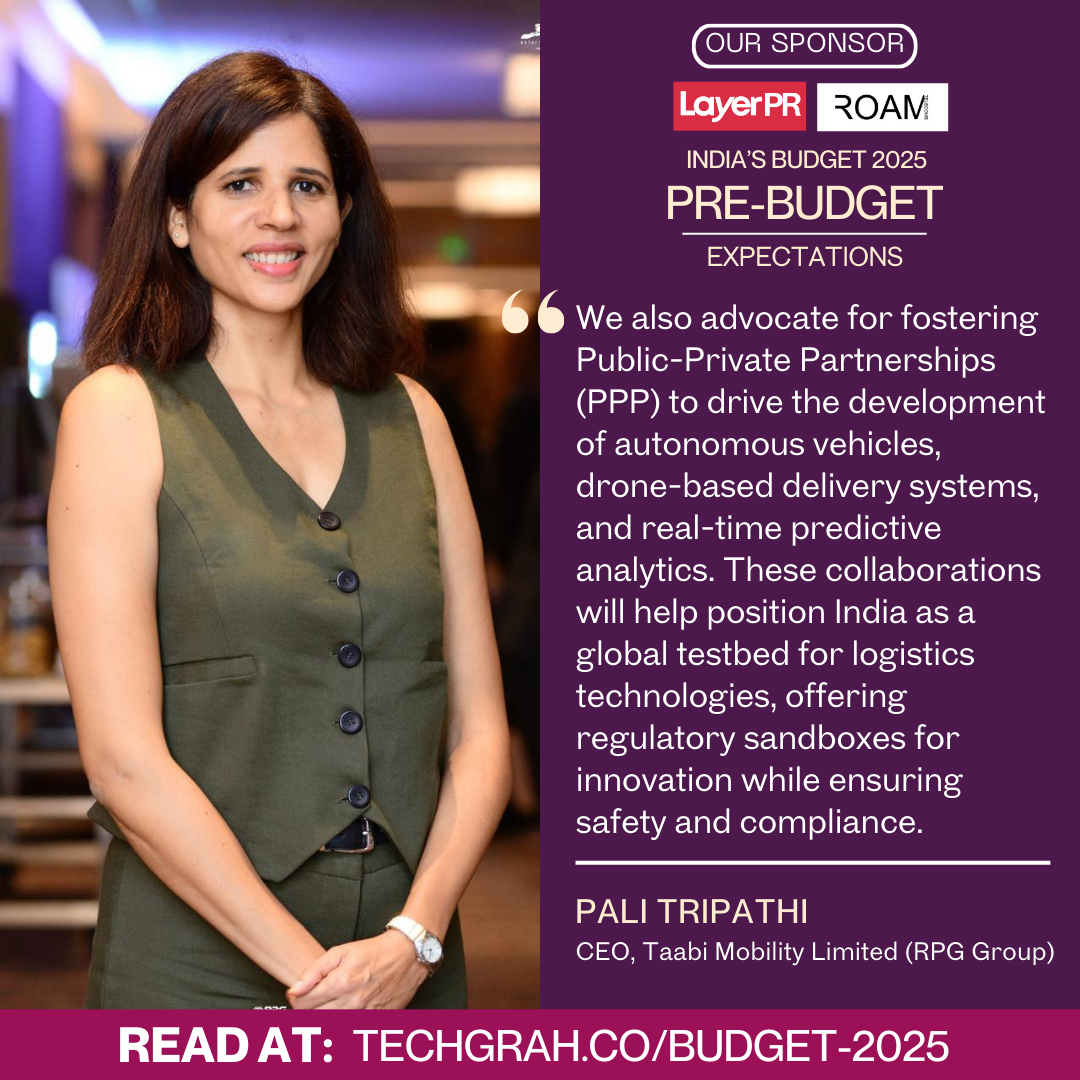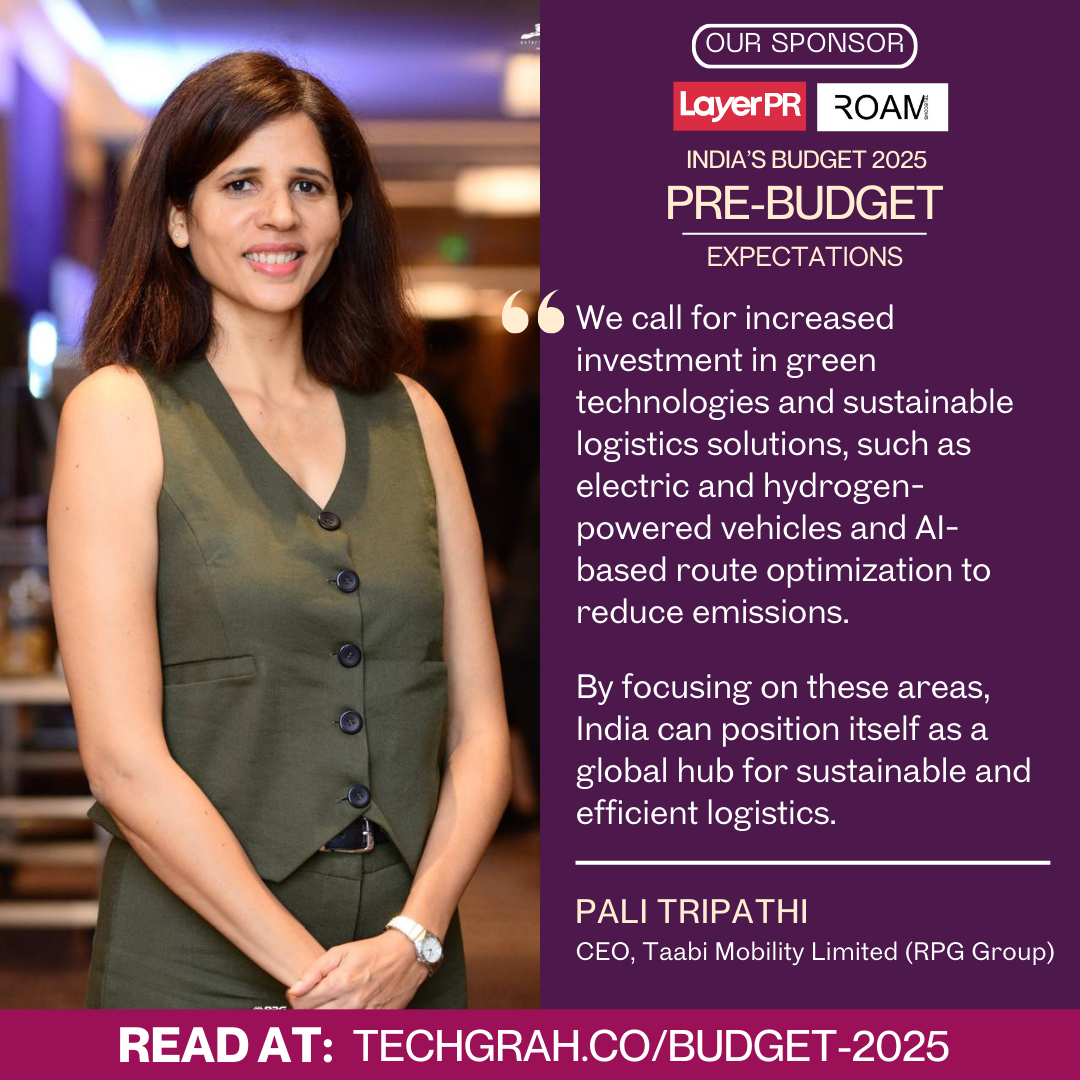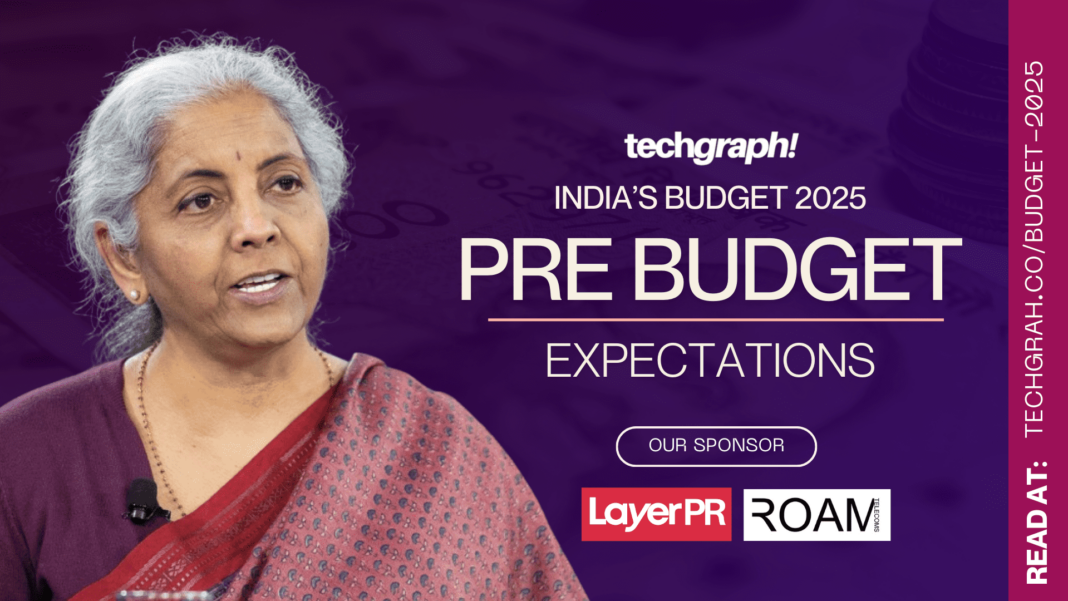With Union Budget 2025 approaching, the logistics industry highlights the need for government action to modernize infrastructure and integrate new technologies. Pali Tripathi, CEO of Taabi Mobility Limited (RPG Group), believes that the upcoming budget should prioritize the development of a cohesive National Technology Strategy for Logistics.
This would focus on incorporating emerging technologies like artificial intelligence (AI), the Internet of Things (IoT), and robotics into logistics operations.
Building a Tech-Driven Logistics Ecosystem
Tripathi highlights the transformative potential of technology-driven infrastructure, proposing initiatives such as smart logistics parks, IoT-enabled transport systems, and advanced port and highway technologies. He asserts that these advancements will enhance operational efficiency while reducing the logistics sector’s carbon footprint, aligning with India’s sustainability goals.

“Enhancing Dedicated Freight Corridors (DFCs) with automation and real-time data analytics can significantly cut transit times and operational costs, boosting India’s logistics competitiveness,” Tripathi explained.
Incentives to Drive Innovation
To encourage innovation, Tripathi recommends tax incentives and subsidies for companies adopting AI, IoT, and robotics. He also advocates for a government-backed logistics technology innovation fund to support startups and SMEs, empowering them to develop and market new solutions.
The Role of Public-Private Partnerships

Tripathi underscores the importance of fostering Public-Private Partnerships (PPPs) to advance autonomous vehicles, drone-based delivery systems, and real-time predictive analytics. These collaborations could position India as a global testbed for logistics technologies. Regulatory sandboxes, he says, can ensure safety and compliance while driving innovation.
Preparing a Future-Ready Workforce
With emerging technologies redefining the logistics landscape, skill development is critical. Tripathi suggests launching specialized training programs to equip workers with expertise in AI, robotics, and automation, ensuring India’s workforce remains future-ready.
Commitment to Sustainability

Tripathi also stresses the importance of green technologies and sustainable logistics solutions. “Investments in electric and hydrogen-powered vehicles, coupled with AI-based route optimization, can significantly reduce emissions, contributing to India’s environmental goals,” he said.
A Comprehensive Roadmap for the Future
As India awaits the Union Budget, Tripathi calls for a roadmap that positions the nation as a global leader in logistics technology. “With the right investments and policies, we can drive innovation, enhance efficiency, and build a sustainable future for the logistics sector,” he concluded.




